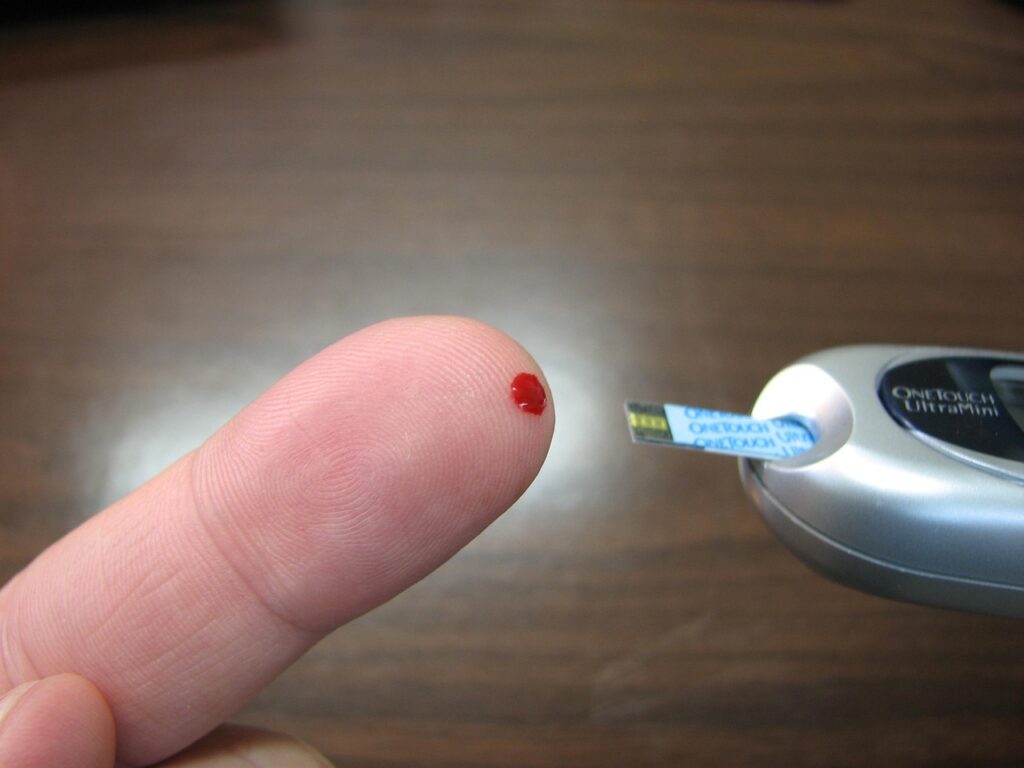Diabetes – Patient’s Perspective

My name is Léonie. I have been living with type 2 diabetes for more than forty years.
It’s a chronic condition that cannot be cured, but it can be treated and managed every day.
In my case, it’s of genetic origin. It requires daily insulin injections, regular medication, and certain dietary restrictions. Despite these constraints, life still holds many pleasures for me — and I’ve chosen to enjoy them fully.
Following Medical Advice
Given my condition, I’ve learned to place great importance on the advice of my doctors — my cardiologist and my endocrinologist.
Their attentive care, treatment adjustments, and kindness have accompanied me all these years.
I want to express my deep gratitude for the exceptional quality of their care and their unwavering support.
My Role in My Own Care
My journey shows how essential it is for someone living with diabetes to understand their lifestyle and the demands that come with the condition.
As a patient partner, I’ve realized that my health also depends on my active participation — observing, noting, asking questions, and sharing my experiences with my healthcare team.
This mutual collaboration is what builds the success of treatment — a team effort where everyone works toward one shared goal: my well-being.

My Secret
I owe my longevity to daily vigilance.
I carefully follow the medication prescribed to me — its dosage, timing, and consistency.
I also monitor my weight and maintain a balanced diet. These simple habits help me manage my condition and preserve my energy.

Exercise
I must admit that physical activity is not among my strongest habits… and I suspect I’m not the only person with diabetes who could say the same!
In my generation, exercise was not a major concern. After the war years, most of us were focused on rebuilding our lives and ensuring stability. Perhaps that’s where a certain sedentary lifestyle took root.
But times have changed. Today, walking is accessible to almost everyone.
It doesn’t require special equipment or a gym membership — and it’s a wonderful way to rediscover your neighborhood, which we often know so little about.
What matters most is to move at your own pace and to do it with intention and pleasure.

Adherence and Perseverance
Through this testimony, I wish to encourage everyone living with a chronic illness to take their medication faithfully.
Modern treatments can greatly improve health and quality of life — but only if taken as prescribed.
If a medication causes discomfort or unwanted effects, it’s important not to stop it on your own. A simple conversation with your doctor or pharmacist can lead to an alternative that suits you better.
Communication remains the cornerstone of safe and effective treatment.
My Cholesterol
My cholesterolCholesterol is essential for the proper functioning of the human body, but it can also have harmful effects if present in excess. >> levels — both the “good” and the “bad” — are well balanced.
Over the years, I’ve been prescribed statins as a preventive measure against cardiovascular disease, to which people with diabetes are more vulnerable. I take them regularly and with confidence.
Statins: A Well-Studied Medication
Statins have sometimes been the subject of controversy, particularly regarding side effects.
However, numerous studies involving tens of thousands of patients have clearly shown that statins effectively lower “bad” LDL cholesterolCholesterol is essential for the proper functioning of the human body, but it can also have harmful effects if present in excess. >> and, as a result, reduce the risk of stroke, coronary events, and overall mortality.
They are also very well tolerated in most people.
From my own reading and discussions with my physicians, I understand that statin therapy in older adults is recommended according to each person’s cardiovascular risk — and for me, that is reassuring enough.

Monitoring My Health
My blood sugar levels remain stable, and my bloodBlood is composed of red blood cells, white blood cells, platelets, and plasma. Red blood cells are responsible for transporting oxygen and carbon dioxide. White blood cells make up our immune defense system. Platelets contribute to blood pressure is within a healthy range.
Every four months, I undergo bloodBlood is composed of red blood cells, white blood cells, platelets, and plasma. Red blood cells are responsible for transporting oxygen and carbon dioxide. White blood cells make up our immune defense system. Platelets contribute to blood tests to monitor both my glucose and cholesterolCholesterol is essential for the proper functioning of the human body, but it can also have harmful effects if present in excess. >>.
I also make sure that the results are sent to my two specialists — my endocrinologist and my cardiologist.
This regular follow-up gives me peace of mind and allows my treatment to be adjusted when needed.

Taking Charge of One’s Health
Taking Charge of One’s Health
Taking responsibility for your health is essential.
Fortunately, it’s easier today than ever before.
We now have access to an abundance of reliable information that can be shared and discussed with our healthcare professionals.
Medicine has advanced tremendously in recent decades — it’s up to us to make the most of it and live life to the fullest, despite the illness.
📖 Also read: Diabetes and Cardiovascular Complications – Medical Point of View









